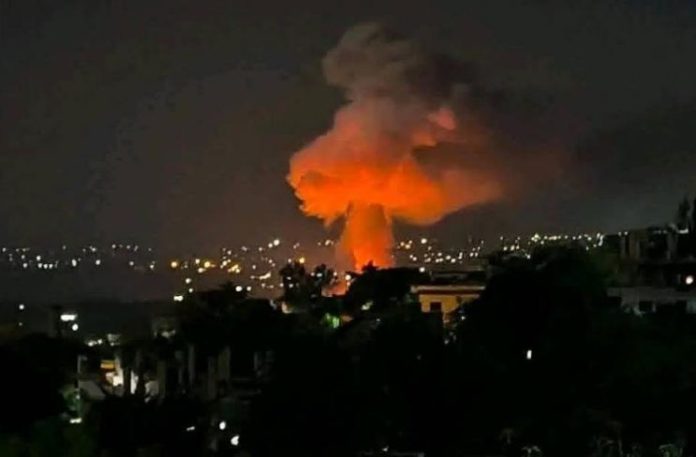
by Muhammad Mohsin Iqbal
When a household member catches a mild fever or a common cold, our instinct is modest and sensible: we reach for remedies taught by elders, rest, and avoid heavy medicine unless necessity compels it. If simple measures fail we try the medicines at hand; if the ailment still persists we consult a physician, submit to tests and, when life requires it, accept the surgeon’s knife. That sequence — care, counsel, and, as a last resort, decisive intervention — is not merely a matter of health but a prudent moral order. So too should be the conduct of states in the face of threats that arise along their borders.
Pakistan’s history of maintaining a neighborly relationship with Afghanistan, marked by patience and tolerance, is long and evident.When the Soviet Union invaded Afghanistan, our country welcomed millions of people fleeing the war. At the peak of this exodus, Pakistan and its international partners recorded around three million Afghan refugees living within its borders, sharing the burden through refugee camps and urban settlements, supported by civic compassion and international aid. This compassionate response became a defining moment in our modern history.
Charity and sacrifice neither require nor ensure limitless tolerance for actions that harm the benefactor. For decades, Pakistan has consistently called on various Afghan governments, and more recently the present authorities in Kabul, to prevent their territory from being used as a base for attacks on Pakistani citizens and institutions. These appeals have come in various forms; discreet diplomatic protests, public demonstrations, and frequent calls to curb militancy spreading across the border. In recent years, Pakistani officials and military representatives have often highlighted cross-border attacks and safe havens as key issues threatening peace along the Durand Line and beyond.
States must begin with persuasion and patient diplomacy; that is the prescription of prudence. When persuasion is met by cooperation, peace obtains and the long human ties between our peoples — shared faith, familial links across provinces, trade and cultural exchange — can flourish. But when repeated appeals yield little and violent actors continue to exploit porous frontiers, a sovereign state has an obligation to protect its people. That duty is not a posture of aggression but the exercise of responsibility; to act lawfully, with proportionality, and with the greatest possible concern to spare innocent life while neutralizing those who plot violence. Pakistan’s public statements and operational summaries in recent years have emphasised intelligence-based operations and the priority given to distinguishing insurgents from noncombatants as part of that burden of proof.
The wider context matters. Regional rivalries and proxy strategies have, at times, transformed local grievances into broader instruments of instability. External actors have sometimes exploited fragilities inside Afghanistan to press geopolitical advantages, and those manoeuvres have a ripple effect across the borders of all concerned states.The May 2025 episode, marked by a brief yet intense confrontation between India and Pakistan, highlights how swiftly escalation can follow even minor strikes. It serves as a stark reminder that strength without fairness provokes retaliation, and caution without determination invites further challenges. The four-day crisis in May showed just how quickly neighborhood tensions can escalate into broader threats, highlighting the importance of keeping diplomatic channels open while ensuring a strong and credible defense.
Practical realism does not foreclose moral leadership. Pakistan’s calls for mediation—whether to regional powers, Islamic allies, or international partners—deserve consistent repetition and reinforcement. When responsible neighbors and organizations step in with counsel and oversight, the chances for a lasting settlement increase. On the other hand, silence or hesitation from those who could assist makes it harder for diplomacy to work and limits the options for a state committed to protecting its citizens. The goal shouldn’t be punitive action but restoring conditions where commerce, travel, and family connections can resume without fear.
Patriotism requires neither reflexive belligerence nor naive forbearance. It demands clarity about right and wrong, courage to defend the innocent, and the wisdom to seek peace that lasts. Let the surgeon’s knife remain a last resort — used only when every other remedy has been tried and found wanting — but let none mistake for weakness the resolve that protects the homeland. A people that gave shelter in an hour of need ask only that memory be honoured by reciprocal commitment to peace. If Afghanistan’s rulers and people value the deep ties that bind us, they will recognize that friendship forbids the use of friendship’s soil as a theatre for hostility.
Above all, this moment calls for statesmanship: leaders who will summon regional partners and Islamic brethren to counsel, diplomats who will keep every avenue of dialogue open, security services that act within law and with discrimination, and citizens who stand united behind measures that preserve life and liberty. If malign actors persist despite counsel and concord, then, with a heavy heart and a steady hand, Pakistan will do what is necessary to secure the safety of its people — always striving to choose the path most likely to lead back to honourable and enduring peace.

















